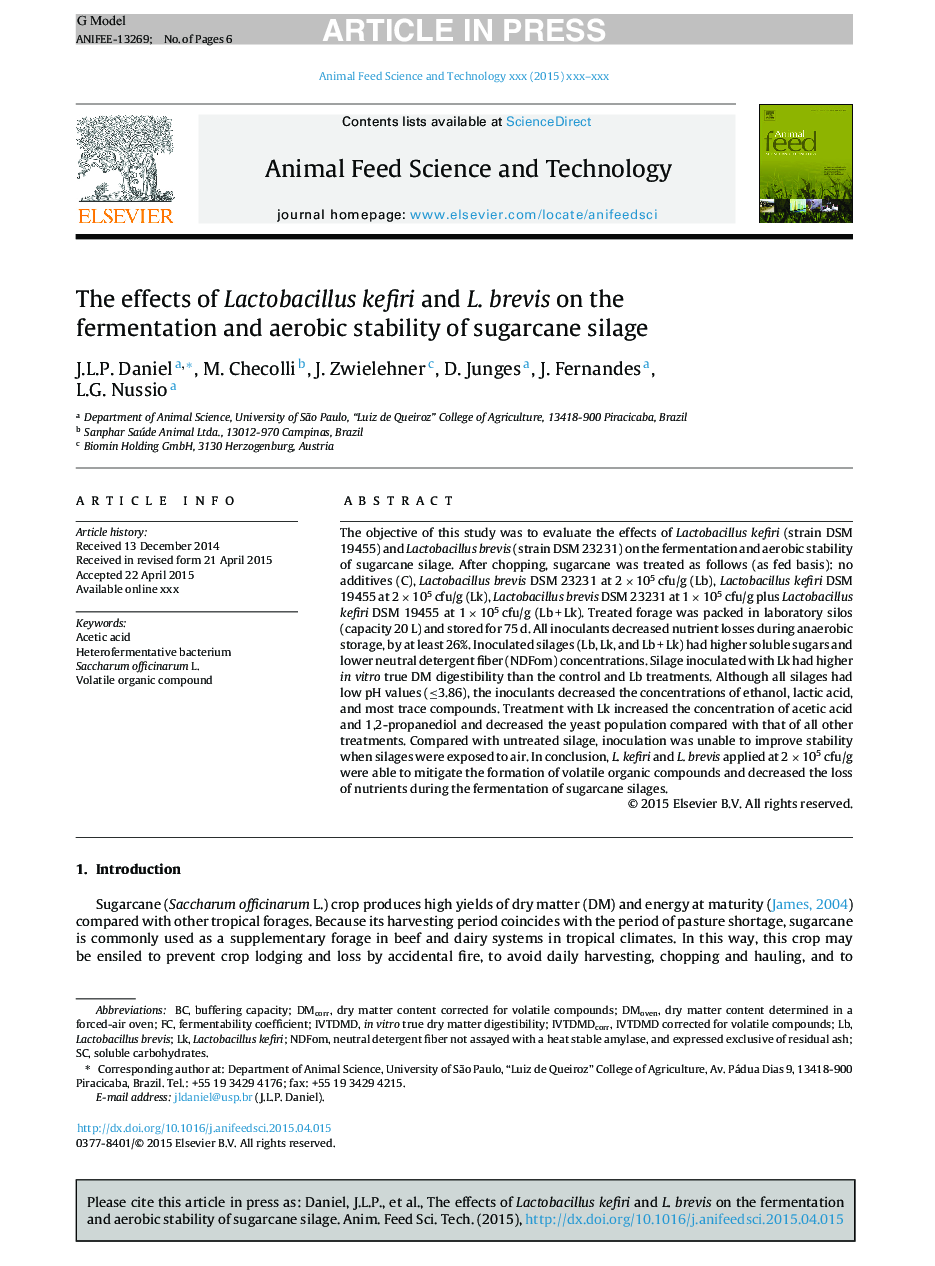| Article ID | Journal | Published Year | Pages | File Type |
|---|---|---|---|---|
| 8491353 | Animal Feed Science and Technology | 2015 | 6 Pages |
Abstract
The objective of this study was to evaluate the effects of Lactobacillus kefiri (strain DSM 19455) and Lactobacillus brevis (strain DSM 23231) on the fermentation and aerobic stability of sugarcane silage. After chopping, sugarcane was treated as follows (as fed basis): no additives (C), Lactobacillus brevis DSM 23231 at 2 Ã 105 cfu/g (Lb), Lactobacillus kefiri DSM 19455 at 2 Ã 105 cfu/g (Lk), Lactobacillus brevis DSM 23231 at 1 Ã 105 cfu/g plus Lactobacillus kefiri DSM 19455 at 1 Ã 105 cfu/g (Lb + Lk). Treated forage was packed in laboratory silos (capacity 20 L) and stored for 75 d. All inoculants decreased nutrient losses during anaerobic storage, by at least 26%. Inoculated silages (Lb, Lk, and Lb + Lk) had higher soluble sugars and lower neutral detergent fiber (NDFom) concentrations. Silage inoculated with Lk had higher in vitro true DM digestibility than the control and Lb treatments. Although all silages had low pH values (â¤3.86), the inoculants decreased the concentrations of ethanol, lactic acid, and most trace compounds. Treatment with Lk increased the concentration of acetic acid and 1,2-propanediol and decreased the yeast population compared with that of all other treatments. Compared with untreated silage, inoculation was unable to improve stability when silages were exposed to air. In conclusion, L. kefiri and L. brevis applied at 2 Ã 105 cfu/g were able to mitigate the formation of volatile organic compounds and decreased the loss of nutrients during the fermentation of sugarcane silages.
Keywords
Related Topics
Life Sciences
Agricultural and Biological Sciences
Animal Science and Zoology
Authors
J.L.P. Daniel, M. Checolli, J. Zwielehner, D. Junges, J. Fernandes, L.G. Nussio,
